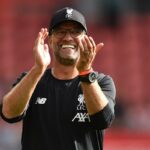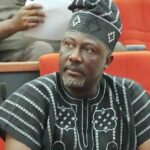
In this interview with SODIQ OYELEKE, a former Director-General of the Nigerian Maritime Administration and Safety Agency, Dr Ferdinand Agu, offers reasons why the South-East should produce Nigeria’s next president.
What’s your view about the South-East’s clamour for Presidency?
I support, with every conviction and full enthusiasm, the quest by the South East to produce the next President of Nigeria. That support is based on our national antecedents and what I regard as the imperatives of national integration and unity.
As a nation, from amalgamation in 1914 till date, we have numerous evidence and instances of deliberate efforts to ensure political, economic and social inclusion of all parts of Nigeria in the affairs of the nation. Policies such as the Federal Character principle, quota system, revenue allocation formula, and a host of others have been introduced overtime to ensure that opportunities and resources are spread in such a way as to include everybody and not merely empower the most advantaged. They are regarded as settled issues in our constitution, administration and interactions. They are instruments of inclusion. Politically, we have, at various times, used the creation of a region, dozens of states and hundreds of local councils as instruments to deepen political administration, equity and inclusion. Within and between our political units, we have used zoning and rotation as a means to promote participation, unity and inclusion. A lot of times, these actions have required rare statesmanship and very deliberate efforts. We did not embark on these measures because they were easy, but rather because we deemed them the right thing to do.
In my view, the nation can and should make such an effort now, to ensure that a Nigerian President of South-East extraction emerges in 2023.
Next, the fact is that nations of great diversities, such as ours, can only endure and prosper if they are rule-based. That means, in our case, that we should abide by both the letters and spirit of our constitution; and we must equally respect those political conventions that had served us well in times past. Our constitution enjoins political inclusion while our political conventions accept rotation and zoning between and within regions as ways to advance inclusion. On both grounds, a President of the South-East extraction, in 2023, will cement our national unity and integration by completing the circle of political inclusion that has remained the uncompleted item in our national agenda and quest for a united and prosperous nation.
Do you think tribe or region should determine who becomes the president and not the above-listed qualities?
Certainly, I do not think that tribe, region or even religion should determine who becomes President. But, it would be naïve to deny that these are part of, if not the major considerations for the electorate. Nigeria needs a President that can unite us around a compelling vision, a leader with the courage to confront the daunting challenges we now face and and compassion to feel the pains of the millions that are left behind. We need a leader with a fine sense of judgement of what is right and what is possible; a President with integrity so that we can trust him and because of him or through him, begin to trust one another again. We need a President with dedication – to those ideals, ideas and values that make us a united and strong community – a great nation. There are many of such people in every part of Nigeria. Our tragedy is that our selection process and our politics ensure that most of them are not even being considered at all. It is such a pity.
So, to the extent that Nigeria, like every other society, has its own peculiar divides and diversities, our search for a President will always factor in the issues of tribe, region and religion.
However, our primary concern should be for a matrix that promotes our ability to manage and respect differences in our tribes, regions and religions; in a manner that creates strength out of differences and promotes loyalty to the nation. We must not let our differences exacerbate fears of domination and disunity.
Do you have a preferred presidential aspirant? What’s your conviction that the person will deliver?
Of course, I have a preferred presidential aspirant. However, since I am engaging with you on the basis of my being one of the organisers of the Greater Nigeria Conference, whose purpose is to persuade other Nigerians to elect a President of South-East extraction, it would be unethical for me to use this opportunity, attractive as it may be, to promote my preferred aspirant.
Fortunately, I know and have interacted with most of the serious aspirants from the South-East. I can assure you, without any equivocation, that they measure up to the qualities we had earlier listed for a Nigerian President. They will deliver.
How do you think the challenges facing the country can be addressed?
Nigeria faces enormous challenges. To get an idea of how bad things are, let us use the Global Index of State Fragility. That index measures the likelihood and indicators of state failure. Nigeria ranks 12th out of about 200 countries and territories. Indicators of national cohesion or the lack thereof include the state of the nation’s security apparatus, elite factionalisation and group grievances. Political indicators include the issues of state legitimacy, state of public services and human rights. Economic indicators are gauged by economic decline, uneven development and human flight, while social indicators include demographics, internally displaced persons and external intervention. Any honest Nigerian can score our country based on the above and arrive at his own conclusions.
Our country is not irredeemable. Far from it. Nigeria can and will pull through all these challenges. But, we must start with an honest evaluation of the structure of the nation. Is it working well? Does Nigeria, as it is, work for all Nigerians? Can Nigeria endure the current structure of its politics, government, economy and society? I doubt it. We must begin by building a new and inclusive consensus on who we are and how best we shall go forward. It is beyond what a President can do alone by himself or with his political party and associates. We need everyone at the table; to come with goodwill and an open mind. But, the President can be the springboard of national action and the indispensable force for consensus building on all the critical issues at stake.
How can you rate the current regime of Buhari?
I think the administration has done its best. It’s time to move on. Government is a continuum. It’s time for new ideas; and for a more urgent sense of purpose in our politics, our economy and society.
With the activities of IPOB, do you think the South-East has a chance of being given the presidency?
It is difficult to really know or say what are the activities of the Indigenous People of Biafra. Since the Federal Government proscribed it and the members went underground, one cannot say for certain what IPOB is doing or not doing. That is why every leader in the South-East has urged the government to explore dialogue as a means of dealing with them so that we can collectively seek rational solutions to whatever may be their grievances or the government’s expectations from them as citizens.
IPOB cannot be a reason for anyone to deny South-East the Presidency. The South-East is deserving of the Presidency on the basis of the loyalty and contribution of its citizens to Nigeria; the manifest capacity and track records of its sons and daughters that are in the contest; and the imperatives of inclusion for national integration and unity. The existence of IPOB cannot vitiate these facts. Also, we have, in the past, had restiveness from the Niger Delta and North-East. We have varying degrees of challenges to the authority of the state from the South-West and North-West. These problems did not disqualify any of those zones from consideration for national leadership. So, if anyone decides to use IPOB as an excuse to apply a different standard to the South-East, then history and posterity will note it.
What’s your advice to Nigerians as the 2023 general election approaches?
I can only add my voice to that of other Nigerian patriots and repeat that our nation is at a crossroads. The decision we make in the next 10 days, especially those that are the electors in the national conventions of the APC and the PDP, will have great consequences on our future as a country. I urge that we all take stock of our individual and group ambitions and benchmark them against our nation’s mood, hopes and fears. We can still build a nation where peace and justice reign if we do the right thing. I hope we can. Indeed, permit me to quote you: “It is not who is right, it is what is right that matters!
Copyright PUNCH.
All rights reserved. This material, and other digital content on this website, may not be reproduced, published, broadcast, rewritten or redistributed in whole or in part without prior express written permission from PUNCH.
Contact: [email protected]





